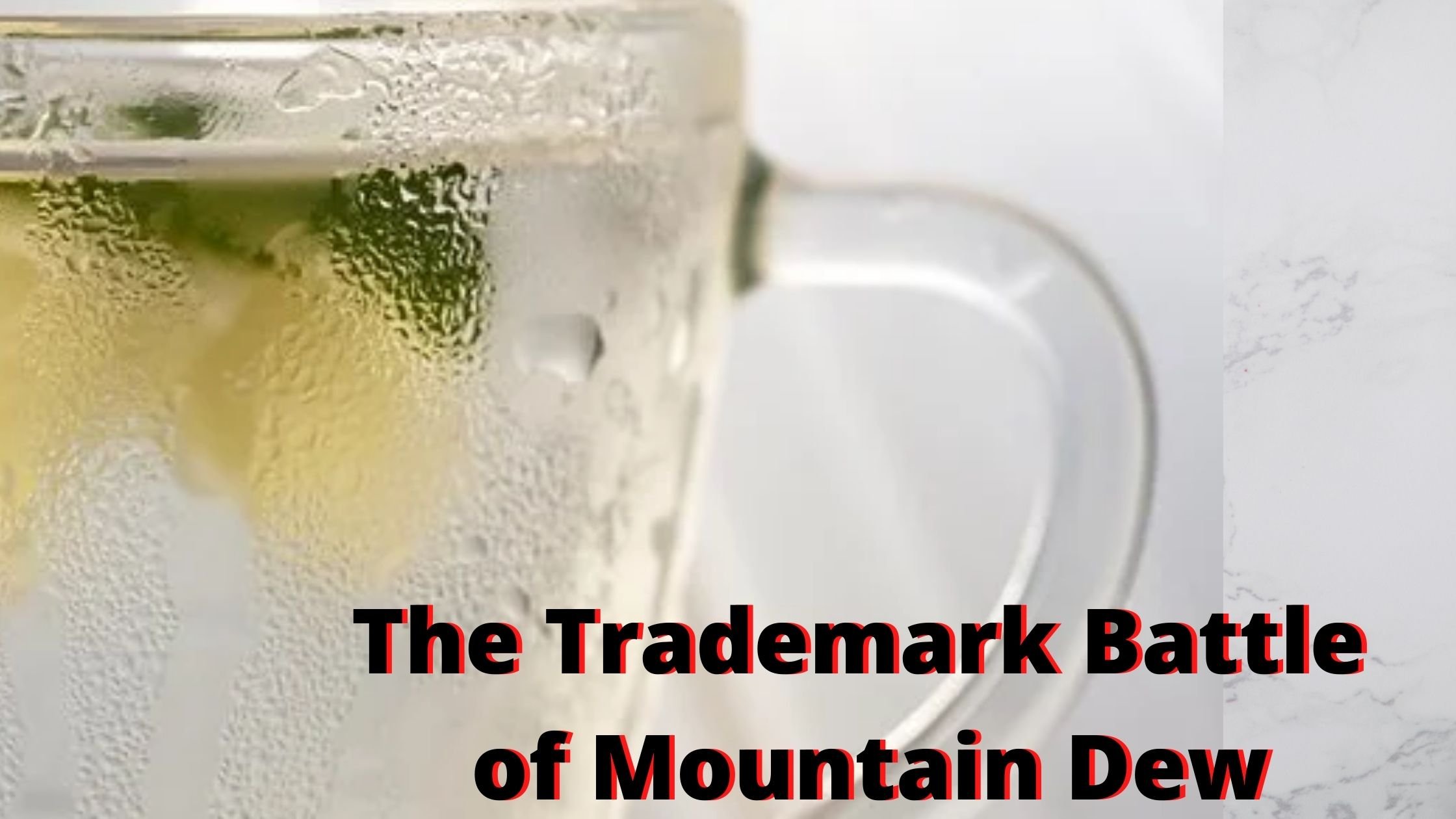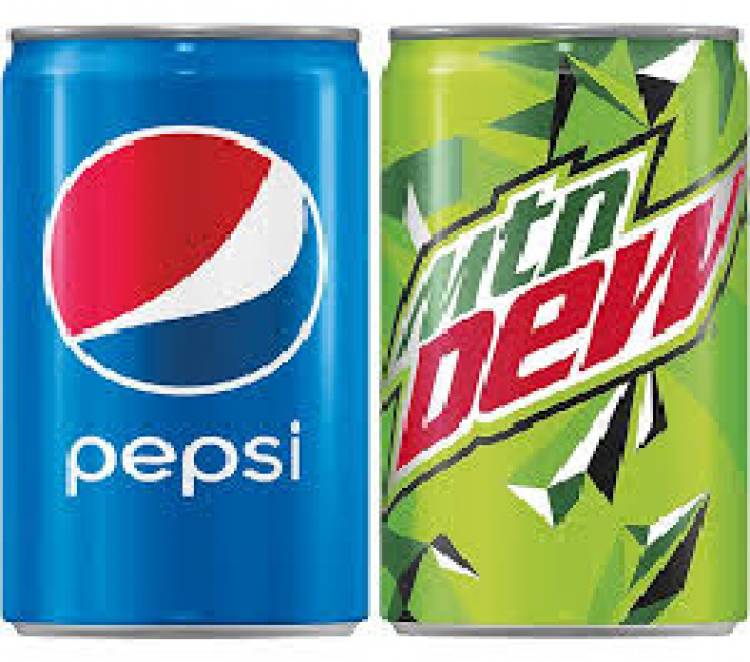The Battle of Mountain Dew (Trademark Battle)
When the multi-billion dollar company PepsiCo filed a trademark infringement suit against Magfast Drinks, which sold packaged bottles of drinking water named 'Mountain Dew' in India, the long fight began. Three years before PepsiCo introduced the soft drink in India, Magfast Beverages challenged the argument by claiming that it had already begun selling water in the year 2000.

Introduction
When the multi-billion dollar company PepsiCo filed a trademark infringement suit against Magfast Drinks, which sold packaged bottles of drinking water named 'Mountain Dew' in India, the long fight began. Three years before PepsiCo introduced the soft drink in India, Magfast Beverages challenged the argument by claiming that it had already begun selling water in the year 2000.
By way of return, PepsiCo said that the 'Mountain Dew' trademark had been registered in the US in 1940 and later registered in India in 1985 under soft drinks. Furthermore, Pepsico argued that the use of the 'Mountain Dew' name would generate confusion among members of the public, but no proof of confusion was submitted to the court.
MagFast Beverages is in Hyderabad, won the battle against MNC beverages, Pepsico to use the 'Mountain Dew' trademark. Chairman of Magfast Beverages, Syed Ghaziuddin, says they began selling bottled drinking water called 'Mountain Dew' in the year 2000.
By 2003, the US Company PepsiCo had introduced its soft drink beverage under the name 'Mountain Dew' in India. Thus, PepsiCo began to investigate and check for packages of water with the same name. The PepsiCo Corporation filed a complaint in Delhi High Court against our company for infringement of their supposed trademark.

Facts of the Case
-
Plaintiff said that in 1997-98 he decided to set up a PDW plant and chose the name 'Mountain Dew' because he thought it meant something pure, originating from natural sources. The company, which started in 2000, gained notoriety and received numerous certifications for meeting high-quality standards. In 2003, his company Magfast Beverages ('Magfast') received a legal notice from members of PepsiCo who approached the Delhi High Court accusing Magfast of infringement of a trademark.
-
Magfast then sued PepsiCo for dismissal, alleging that the latter had no rights over the trademark because it had not been used before 2003 in India. Pointing out that PepsiCo does not market its PDW branded drink as 'Mountain Dew' but as 'AQUAFINA, Magfast argued that under that trademark, the MNC cannot prohibit it from selling its PDW. PepsiCo was accused of passing off its products as Magfast.
-
Furthermore, PepsiCo was charged with colluding with Times of India and Vartha, a Telugu newspaper, for publishing defamatory Magfast articles that caused the loss of credibility and mental anguish, seeking harm worth 25 lakh!
-
PepsiCo categorically refused to perform any actions that would defame Magfast. It says that since 1940, it has been selling citrus soda called Mountain Dew and has tremendous popularity all over the world. It also owns registered name marks in 100 countries, including those dating back to 1985 in India. It thus accused Magfast of engaging in acts of infringement.
(In 2005, IPAB denied Syed Ghaziuddin's petition requesting the withdrawal of PepsiCo's trademarks from the registry on the grounds of non-use.)
Analysis
-
To determine if Magfast enjoyed trademark rights over MOUNTAIN DEW, the court relied on four documents: the advertising of the PDW plant’s inauguration from November 2000 published in ‘Siasat’, an Urdu language daily; a certificate by the Central Bank of India’s branch manager claiming that Magfast has been enjoying credit facilities from July 2000; a tax document evidencing a 3.75 lakh turnover; and a Small Scale Industry registration certificate.
-
Since the year 2000, Magfast has been listed as a previous user of the label. The court ruled in favor of Magfast, referring to the Supreme Court's decision in Syed Monideen v. Sulochana Bai, which accepted the common law principle of preference in adoption prevailing over registration.
-
PepsiCo has stated that the High Court will appeal this ruling. There are in particular, some problems in the conflict that require greater attention.
-
While the court based its decision on the rights of prior consumers, it made no reference whatsoever to Section 34 of the Trade Marks Act 1999, which incorporates this law. This section restricts the exclusive rights under Section 28 available to the registered owner of a trademark.
-
It provides that a registered user of a trademark (here, PepsiCo) cannot prohibit the use of an identical or similar mark by any other user (here, Magfast) if that other user has continuously used the mark before: (a) the use of the first-mentioned mark (2003); or (b) the date of registration of the first-mentioned mark (1985), whichever is earlier.
Judgment
-
Hyderabad Court dismissed the lawsuit filed by Pepsico after a 15-year legal battle and rejected the claim on the Transborder reputation and infringement claim.
-
Mr. Ghaziuddin claimed that the Court had dismissed PepsiCo's charges of trans-border credibility and violation thus granting the order in his favour. He also argued that in 2004, PepsiCo had filed an undertaking agreeing to compensate Magfast Beverages in the event that the multinational corporation had lost the lawsuit.
-
PepsiCo insisted, according to paragraph 21 of the order, that its Mountain Dew was 'well-known throughout the world'. This is an interesting line of contention. Although the court has not assessed the likelihood of a trans-border image being enjoyed by PepsiCo's brand, this could occur at a later stage.
(In the digitalized, post-liberalization period, the doctrine of trans-border reputation has been established by the courts to reconcile the territorial essence of trademark law with the blurring of the distinction between markets. Recognized in Whirlpool, the doctrine argues that if the reputation of a trademark used across countries has transcended geographical barriers to spill over into the Indian market and is recognized by consumers despite the fact that there is no real business here, such a trademark is entitled to protection from those who can free-ride its reputation.)
Conclusion
Mr. Ghazuddin dedicated his victory to all Indian companies who believe in the 'Made in India' movement in his concluding remarks. Magfast has emerged triumphant for now but it remains to be seen what direction this conflict takes with these problems looming large over what is developing into yet another war between a global giant and a homegrown brand.
BY-
Ankita Rathi












